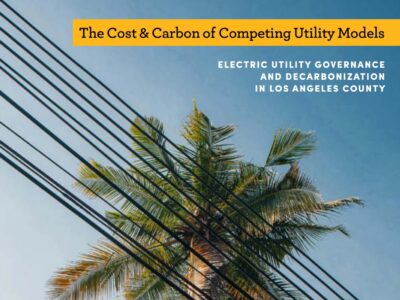Natural Gas Fracking: Don’t Worry, Be Happy!

When George Washington Law School’s Richard Pierce talks about energy, I listen. And a few days ago he posted a short piece with the provocative title, “Natural Gas Fracking Addresses All Of Our Major Problems.” (emphasis in original!). If you want to read the nutshell case for why fracking is good, then this is your logical first stop. It’s well-argued, well-cited, well-organized, and well-written.
How much it addresses the problems with fracking, however, is more doubtful. Pierce clearly understands what the problems are, but downplays them so much that the phrase “sweeping under the rug” comes to mind. For example, he states that “replacing coal with gas in the US will reduce total emissions of green house gases attributable to electric generation by 45 per cent.” Let’s assume that the figure he cites from the International Energy Agency is accurate, even though skeptics like Joe Romm argue that the IEA is notoriously over-optimistic in its estimates . Mere development of natural gas does not necessarily imply that it will displace coal — indeed, ramping up of natural gas might actually wind up displacing renewable sources, which have less political power and technological history. Pierce seems to recognize this, which is why he notes in passing that it would be a good idea to enact a carbon tax. But that is the whole point. Fracking itself does not address all of our problems: only something like a comprehensive energy policy can do that (and even then, given the dysfunction of US politics, it probably won’t).
Then there is the problem of methane leakage, which Pierce specifically addresses nowhere in the piece. Or the problem of leakage into groundwater supplies, also unmentioned. Pierce does allude to these factors, mentioning at the end of the piece that yes of course “regulators and gas producers [must] take the steps needed to satisfy citizens and governments that horizontal drilling and hydraulic fracturing of shale formations can be accomplished with tolerably low environmental costs.” He adds that “I am confident that we can satisfy these conditions,” but he provides no evidence as to why he believes this. He says that the process will be aided by the “excellent reports” of government agencies, most importantly IEA’s “Golden Rules for Fracking,” which I have blogged about earlier. But given the Republican Party’s rejection of science as a matter of high principle, the idea of technical documents contributing to policymaking in the modern age is best met with a spit-take. Lots of other problems, too: for example, he argues that increased natural gas production will aid the US economy but ignores the potential resource curse problems.
I suspect that Pierce knows all of this. His piece is the academic’s equivalent of a shot across the bow. And it is well worth the 15 minutes or so that it takes to read. But it is only the start of a dialogue: we need a few more rounds of point and counterpoint before getting to the real issues.







Reader Comments